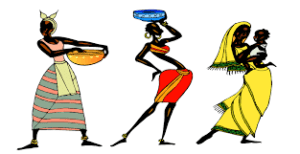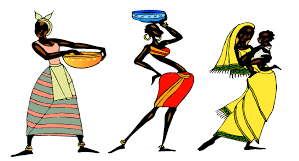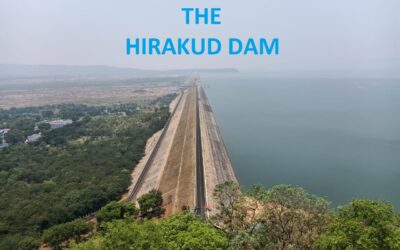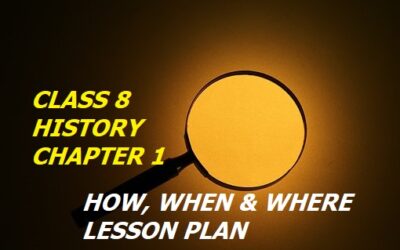Eliminate your fears & doubts With Class VIII S. Sc. Lesson Plan – July
VIII S. Sc. Lesson Plan – July help you to eliminate your fears and doubts and to explore the subject in a better way. It makes you more focused if you have a detailed class VIII S. Sc. Lesson Plan, July at the beginning of the session. You can use teaching aids and conduct class tests if you have class VIII S. Sc. Lesson Plan – July with you. As class VIII Social Science is based on concepts. Therefore, for better interaction with students and to eliminate your fear and doubts let’s begin class VIII S. Sc. Lesson Plan – July.
So, if you are a new teacher and finding difficulty in preparing class VIII Social Science Lesson Plan, this blog article will help you out.
Topics to be covered:
Geography:
Chapter 4 : Agriculture
History:
Chapter 3 : Ruling the countryside
Chapter 4: Tribal, Dikus and the vision of a golden age
Lesson 5: When people rebel
Political Science:
Chapter 3 : Why do we need a parliament?
VIII S. Sc. Lesson Plan – July, Eliminate your fears & doubts

Class VIII S. Sc. Lesson Plan – July
Chapter 4 Agriculture
Previous Knowledge:
The teacher will ask a question on agriculture to check how and what children know about Agriculture .
Specific Objective:
Firstly, to know about different types and importance of farming.
Teaching Method
Tools/Teaching aids: Text Book, Black Board, chalk, Map of India, smart board, Images and PPT
Technique: Explanatory method.
To begin with, the teacher starts interacting with the students and asks few questions.
What did you bring in your tiffin box today?
students response – Bread, Dosa, Chapati, Idli, Poha, Chowmin, etc.
Teacher asks another question. Do you know what are all these things made from?
Students response – Yes teacher, Wheat, Rice, Maida etc.
So, do you know who grows these crops for us?
Students response – yes teacher, Farmers.
Do you know how the farmers grow these crops ?
Students response – ????
Now the teacher says that today we are going to read about farming.
In this way, the teacher uses various methods to make the topic interesting and also interact with the children to get them involved.
Content/ Teaching Points:
Introduction: Primary, Secondary and Tertiary activities.
Farm System
Types of farming
Major crops
Agricultural Development
A farm in India and U.S.A.
Activity: Debate on the topic ” Children do not want to be farmers”
The teacher selects two students from each row.
One has to speak in favor and the other one in against.
Each child will be allotted 3 minutes time to present his/her point of view.
Every member will be given 10 minutes time to prepare and discuss their points.
Objective:
To know about the problems faced by our farmers.
Skills Developed:
Speaking, Listening and understanding.
Assessment criteria:
Involvement, content and accuracy.
To get an idea on this you can click Best Role Play Activities To Improve Communication Skills
Class work:
i) MCQ’s
ii) Short and long answer type questions will be discussed and done.
Home-work: (Map work)
Mark the following on the outline map of India.
i) Sugarcane, Tea, Cotton, Rice, wheat and oilseeds producing states of India.
ii) a state where subsistence farming is practiced.
iii) a state where commercial farming is practiced.
Values imparted:
Firstly, Children will learn the importance of agriculture.
Secondly, they will be empathetic towards Indian farmers.
Integrated learning:
Integrating with Biology.
- What role does microorganisms play in making the Soil fertile?
Integrating with Hindi/English.
Write a letter to the agriculture minister of India stating the condition of farmers in your state.
Learning Outcome:
After the completion of this chapter, students will be able to
- Firstly, children will understand the problems of Indian farmers.
- Secondly, they will also gain knowledge about the diverse crop pattern.
- will understand the problems of Indian farmers.
- also they can now relate the farming of India with that of U.S.A.
Remedial Measure:
Pair and share
Children sitting on the left side of the row will explain the chapter to the children sitting on their right अपने अंदर छुपी प्रतिभा को कैसे पहचाने.
Class X NTSE 2020-21 – Most expected Geography Questions with Answers
_____________________________________________________________________________________________________________________________________________________
VIII S. Sc. Lesson Plan – July, Eliminate your fears & doubts
Chapter 3 : Ruling the countryside
Previous Knowledge:
The teacher will ask a question on Company’s civil administration to check the basic knowledge of the students.
Specific Objective:
Firstly, to make the people aware about the Company’s rule.
Secondly, to understand the policy of land revenue.
Teaching Method
Tools/Teaching aids: Text Book, Black Board, chalk, Map of India, smart board, Images and PPT
Technique: Interactive with contemporary examples.
The teacher first introduces the topic to the students and explains how Britishers ruled over India.
Further, the teacher explains the structure of administration and discusses the role of collector.
New methods of revenue collection, condition of farmers and Indigo revolt will also be explained to the students.
Content/ Teaching Points:
The company becomes the diwan.
Revenue for the company.
The need to improve agriculture
Crops for Europe.
Demand for Indian Indigo.
The Blue Rebellion
Activity: Group discussion
Topic: Revenue collection methods.
Objective:
To know about the different methods of revenue collection, their merits and demerits.
Method:
The class will be divided into 3 groups.
Each group will be given a topic like, The permanent settlement, Mahalwari settlement, the Munro system.
Each group will discuss the merits and demerits of each system.
Their write-ups will be displayed on the class board for two days.
Skills Developed:
Speaking, Listening, understanding and critical thinking.
Assessment criteria:
Involvement, participation, accuracy and presentation.
Class work:
i) Quiz.
ii) Short and long answer type questions will be discussed and done.
Home-work: (Map work)
Read the English translation of “Neel Darpan”
Find out, for what purpose Indigo is used?
Values imparted:
They will develop a sense of Patriotism.
Learning Outcome:
After the completion of this chapter, students will be able to
Firstly, understand the importance of revenue collection.
Secondly, they will know the use, importance and demerits of growing Indigo.
Remedial Measure:
Pair and share.
Extra Class:
The teacher will provide notes and explain the chapter to the slow learners in small groups by paying extra attention बोर्ड परीक्षा का भय मन से कैसे दूर करें ? .
_____________________________________________________________________________________________________________________________________________________
VIII S. Sc. Lesson Plan – July, Eliminate your fears & doubts
Chapter 4 : Tribal, Dikus and the vision of a Golden age
Previous Knowledge:
Initially, the teacher asks who are tribal, where do they live and what is their main occupation?
Specific Objective:
To make the people aware about the tribal occupations.
To understand the life of tribal people under British rule.
Teaching Method
Tools/Teaching aids: Black board, text-book, and videos on the life of tribal people.
Technique: Story telling method
The teacher first explains about the tribal society during Pre-British India and discusses about their primitive cultivation.
Further, the teacher explains about the tribal life under the British rule and the problems faced by the tribal community which resulted into many revolts.
The role of Birsa Munda will also be discussed in the class.
Content/ Teaching Points:
How did tribal groups live?
Some took to settled cultivation.
How did colonial rule affect tribal lives.
Forest laws and their impact.
The problem with trade.
Birsa Munda.
Activity:
- Draw or paste the picture of Birsa Munda and write five sentences about his contribution.
- What are the different types of tribal groups in India. Make a collage on the handicraft work done by them.
Class work:
Question and answers given in the exercise will be discussed and done.
Home-work:
Read about Birsa Munda and other tribal heroes and share them with your classmates.
Values imparted:
To develop a sense of awareness towards our Natural vegetation and forest resource.
Learning Outcome:
Children will come to know about the dominating forest laws and the problems faced by the tribal people.
Remedial Measure:
This chapter will not be assessed in examination, therefore no remedial class is required.
However, children can ask their doubts to their teachers any time CREATE FIRST IMPRESSION THROUGH YOUR HANDWRITING .
____________________________________________________________________________________________________________________________________________________
VIII S. Sc. Lesson Plan – July, Eliminate your fears & doubts
Chapter 3 : Why do we need a parliament?
Previous Knowledge:
The teacher begins the class by asking a question.
Have you ever seen a parliament house?
What happens there?
These two questions will help the teacher to check their prior knowledge about the topic.
General Objective:
Students will get general information about Parliament.
They will also know about various functions of Parliament.
Specific Objective:
To develop interest in Political science.
To develop respect for our constitution.
Also to know about our election process.
Teaching Method:
Story telling and question answer technique.
Tools/Teaching aids:
Textbook, School diary, Images, Black board, Chalk, Chart, duster and a Political map of India.
Technique:
The teacher will display an image in the class and ask the students what do you understand by this picture?
Students response- Laws, rules, discipline etc.
Now the teacher shows an image of our Prime Minister.
Students response – Narendra Modi.
Teacher asks whether he is the king or the Prime Minister?
Students response – Prime Minister.
Next question by the teacher is why he is not the king of India? Which form of government is there in our country?
Students response – ????
The teacher says, today we are going to learn about our parliament and its functions.
Content/ Teaching Points:
How our Parliament works.
Functions of Union Legislature.
Activity:
Topic:
Demo of election procedure.
Objective:
to understand the election process in a democratic set up.
Method:
- The teacher will play the role of Chief election commissioner.
- Ballot paper and party manifesto will be prepared by the students.
- two students (a boy and a girl) can be made returning officers.
- two more students (a boy and a girl) can be made as officers on election duty.
One week in advance the election process will start.
Children will file Nomination papers.
Each party will do campaigning for five days.
On the day of election students will cast their votes.
Counting of votes will be done by the students.
The teacher (Chief Election Commissioner) will announce the election results.
Skills Developed:
Thinking, Speaking, Listening, Decision making, Organizing etc.
Assessment criteria:
It is a learning activity mixed with fun, therefore it will not be assessed.
Class work:
Arrange the election process in sequence
- Election date is announced.
- Oath taking.
- Counting of votes.
- Election campaign
- Declaration of results.
- Filing the nomination papers.
- Election campaigning.
Home-work: (Map work)
Find out the election process of Rajya Sabha and in your state’s Vihaan Sabha.
Values imparted:
Involvement, Honesty, Hard work, Team work.
Learning Outcome:
- Get familiarized with the election process.
- Understands and appreciates the power of a common man in a Democratic country.
Remedial Measure:
Extra Class:
The teacher will provide notes and explain the chapter to the slow learners in small groups by paying extra attention.
VIII S. Sc. Lesson Plan – July, Eliminate your fears & doubts
Conclusion:
Although these chapters are difficult for the students of class VIII but with the help of class VIII S. Sc. Lesson Plan – July, one can make it interesting. The class VIII S. Sc. Lesson Plan – July has number of activities which will help you in your teaching and learning process.
If you like this class VIII S. Sc. Lesson Plan – July, you may share it with your teachers, friends, colleagues etc.
You may be interested in
Social Science Lesson Plan For Class VII with Classroom Activities – Complete Guidance
Class VIII Lesson Plan Of Social Science – Why Is It So Famous?
Class VIII Social Science Lesson Plan – Activity Based For The Month Of April – May
एनसीईआरटी कक्षा 7 सामाजिक विज्ञान भूगोल अध्याय 3 हमारी बदलती पृथ्वी
भारत – आकार और स्थिति एनसीईआरटी कक्षा 9 भूगोल





Very helpful to me
Very helpful
Kindly post lesson plan for all the lessons gor classes 7,8,9&10
Very helpful and useful
Thanks, Mohana for your encouraging response. Keep visiting and sharing shapingminds.in
Thanks for the useful lesson plans and activities.
Sir… please upload when people rebel class VIII Lesson plan ….
Sir could you send the lesson plan for class 8 Hist why people rebel.
Just write why people rebel shapingminds.in you will get it.
Answer